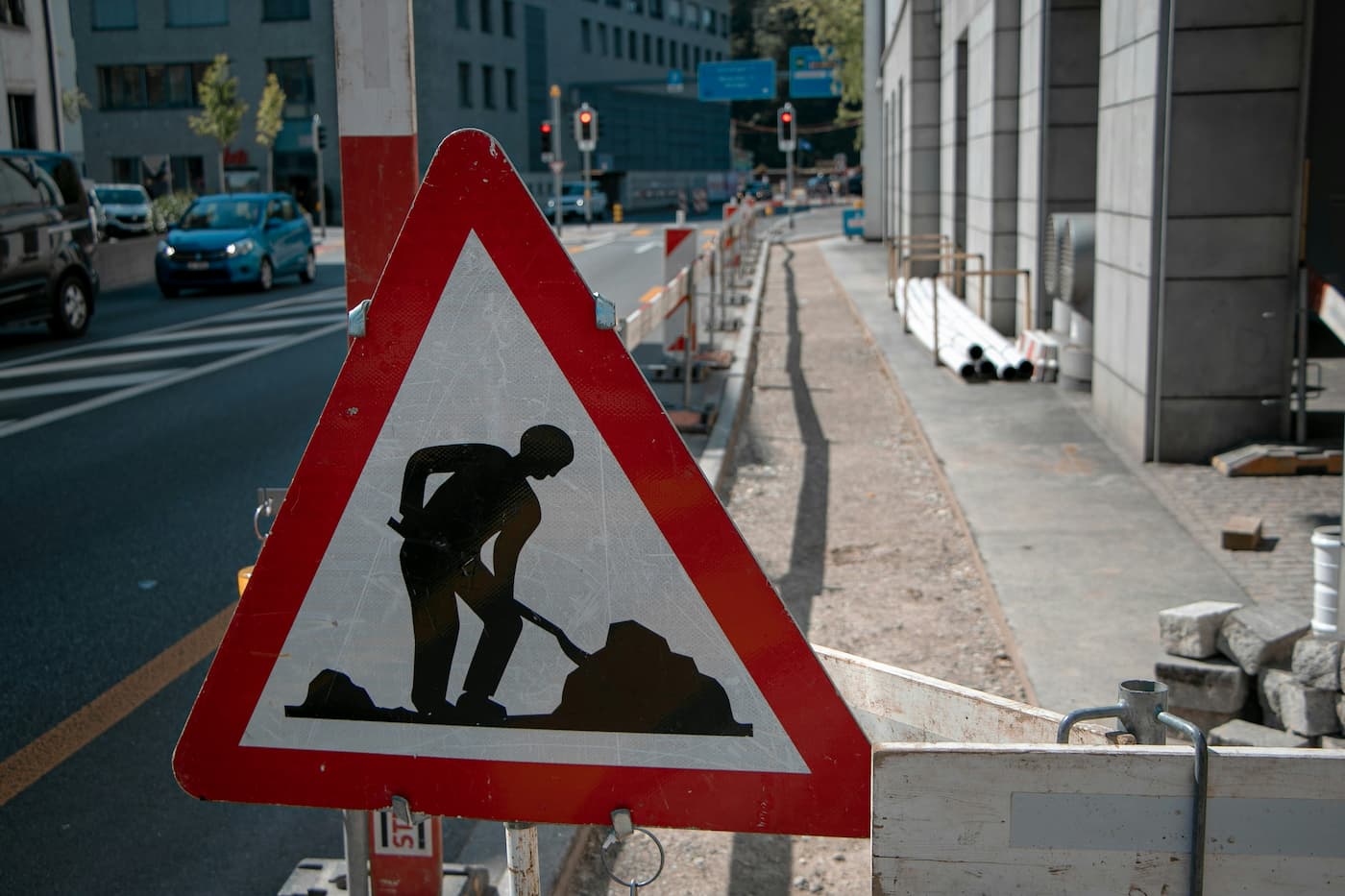PCBU Responsibilities For Health & Safety
Learn key PCBU responsibilities for workplace health and safety compliance.

Ensuring workplace safety and health is paramount for any business or undertaking. As a Person Conducting a Business or Undertaking (PCBU), understanding your duties and responsibilities under the Work Health and Safety 2011 Act as well as changes to psychosocial hazard legislation by state is crucial.
In this guide, we break down the primary obligations of a PCBU, from maintaining a safe work environment to managing psychological health risks, and provide practical steps to meet these legal requirements effectively.
What is a PCBU?
A Person Conducting a Business or Undertaking (PCBU) is a legal term used in the Work Health and Safety (WHS) Act 2011 to describe an entity that conducts business or undertakes work activities. The term is broad and encompasses various working arrangements, ensuring that all forms of business operations are covered under WHS laws.
A PCBU according to WHS Act
Under the WHS Act, a PCBU has a primary duty of care to ensure the health and safety of workers and others affected by the business or undertaking. This means that PCBUs are responsible for creating and maintaining a safe work environment and implementing safety measures to prevent harm.
Types of PCBUs
PCBUs can exist in various forms, reflecting the diverse nature of business structures. The WHS Act captures all types of PCBUs, including but not limited to:
- Companies
- Unincorporated Bodies or Associations
- Sole Traders
- Self-Employed Persons
- Partnerships
Examples of PCBUs in Different Work Environments
PCBUs operate across a wide range of industries and environments. Here are a few examples to illustrate the diversity:
Construction Site
On a construction site, the principal contractor, subcontractors, and any individual tradespeople working independently are all considered PCBUs. Each has specific duties to ensure safety on the site.
Healthcare Provider
A hospital or a private medical practice acts as a PCBU, ensuring the health and safety of medical staff, patients, and visitors, managing risks associated with medical procedures and patient care.
Remote or Home-Based Work
For businesses that involve remote or home-based work, the PCBU must ensure that safety measures extend to these environments, covering aspects like ergonomics and mental health support for remote work.
Responsibilities of PCBUs
Primary Duty of Care
The primary employer duty of care is the cornerstone of a PCBU’s responsibilities under the Work Health and Safety (WHS) Act 2011. This duty underscores the commitment to creating and maintaining a safe work environment for all workers and any other persons who may be affected by the business or undertaking.
Protecting Visitors and Other Persons at the Workplace
The duty of care extends beyond workers to include any other individuals who may be present at the workplace, such as visitors, clients, delivery personnel, and members of the public.
A PCBU must ensure, as far as reasonably practicable, that these individuals are not exposed to health and safety risks arising from the business activities.
Key Duties for PCBUs in the Workplace
The primary duty of care encompasses several critical elements that PCBUs must adhere to, as part of workplace health and safety:
Provision and Maintenance of a Safe Work Environment
This involves maintaining cleanliness, proper lighting, ventilation, and a layout that facilitates safe movement and operations.
Psychological Health Duties
Under the Work Health and Safety (WHS) Act, ‘health’ encompasses both physical and psychological wellbeing, underscoring the Act’s recognition of workplace safety extending beyond physical hazards.
The WHS Act mandates that PCBUs protect psychological health by identifying and managing risks such as work-related stressors and psychosocial hazards. This requires proactive risk assessments to address factors like high job demands, low job control, bullying, harassment, and poor work-life balance, which can impact workers’ psychological health.
Provision and Maintenance of Safe Plant and Structures
Ensuring that all physical aspects of the workplace, including buildings, machinery, and tools, are safe to use and well-maintained.
Provision and Maintenance of Safe Systems of Work
Developing and enforcing standard operating procedures (SOPs) and safe work methods to manage risks associated with specific tasks and processes.
Safe Use, Handling, and Storage of Plant, Structures, and Substances
Implementing proper protocols for handling, using, and storing hazardous substances and equipment to prevent accidents and exposures.
Provision of Accessible and Adequate Facilities
Ensuring that workers have access to necessary amenities such as washrooms, drinking water, and dining areas that meet health and safety standards.
Provision of Instruction, Training, Information, and Supervision
Continuously educating and training workers on safety practices, hazard identification, and emergency response, and providing adequate supervision to ensure compliance.
Why Track Everything in Foremind?
A Centralised Location
You can easily track and manage your hazards as well as receive anonymous incident reports from workers.
Holistic Insights
Foremind provides EAP insights around wellbeing themes that workers are seeking assistance with and overlays this with your hazard & risk assessments.
Easy Audit Logs
Easily product reports on the incidents that have occured in your organisation as well as all of the actions you have taken to reduce them from occurring again.
Managing Risks For PCBUs
The risk management process under the WHS Act begins with identifying and assessing workplace hazards to determine potential harm. Control measures are then implemented to eliminate or minimise these risks, ensuring ongoing review and adaptation to maintain effectiveness.
PCBUs must ensure health and safety measures are “reasonably practicable” by considering risk likelihood, potential harm, available control methods, feasibility, and cost-effectiveness in implementing control measures.
Specific Requirements for High-Risk Activities
High-risk activities such as construction work and handling hazardous substances require adherence to strict WHS regulations. PCBUs must comply with tailored guidelines to prevent accidents and occupational health issues.
Applying the Hierarchy of Control Measures to manage risks
PCBUs must follow the hierarchy of control measures, prioritizing elimination, substitution, engineering controls, administrative controls, and personal protective equipment in sequence to mitigate workplace risks effectively.
Consultation and Communication
Consultation is a legal requirement under the Work Health and Safety (WHS) Act, essential for effectively managing health and safety risks in the workplace. It involves open communication between PCBUs and workers to identify hazards, assess risks, and make decisions that promote a safe working environment. This process ensures that all stakeholders are informed and have the opportunity to contribute to health and safety decision-making.
Effective consultation involves regular discussions, feedback mechanisms, and structured forums where workers can express their views on health and safety matters. PCBUs should establish clear channels of communication, such as meetings, safety committees, and digital platforms, to facilitate meaningful dialogue.
This ensures that decisions regarding risk management are well-informed and reflective of the diverse perspectives within the workplace.
Notifying the Regulator Of Incidents
Under the WHS Act, PCBUs have a legal obligation to promptly notify Comcare of notifiable incidents that occur in the workplace. Notifiable incidents include serious injuries, illnesses, and dangerous incidents that arise from work activities. PCBUs must ensure that workers are aware of internal hazard reporting procedures and align with regulatory requirements.
Summing Up
A Person Conducting a Business or Undertaking (PCBU) has a primary duty of care under the Work Health and Safety (WHS) Act 2011 to ensure the health and safety of workers and others affected by the business.
This includes maintaining a safe work environment, managing psychosocial health risks, ensuring safe use and maintenance of plant and structures, and providing instruction and training. PCBUs must also manage risks, consult and communicate with workers, and notify regulators of incidents.

Hello 👋 I’m Joel the founder of Foremind.
Are you ready for simplified support & compliance?
Latest insights
Answers to the frequently asked questions.
Still have questions?
Email us at enquiries@foremind.com.au and we'll get back to you quickly with a response
Yes, we have culturally competent counsellors available, including those able to work with first nation and CALD employees.
Onshore on secure AWS Servers in Sydney Australia. All data is encrypted in transit and at rest and our entire team is located in Australia.
Employees can access our platform on any device (mobile, laptop, desktop, etc.) as long you have the website link - no need to download any app on devices. You wouldn’t need to enrol any of your staff individually.- When we do our onboarding, we ask for the first name, last name and email of all your employees, and send out an email invite to all them which will allow them to create their own individual account to access the platform. For new staff we can also invite them or provide you with a unique link to embed in your onboarding process, whichever is more convenient for you. We also kick things off with a launch webinar or video to make sure everyone is aware of Foremind and how to use it. We’ll also provide you with any collateral such as posters, QR codes, brochures etc. to help drive awareness and encourage people to create an account in the platform.
The support line is answered by our reception service 24/7. It is for urgent platform or session-related issues only (e.g. *“My counsellor didn’t show”*) or helping staff create an account.





